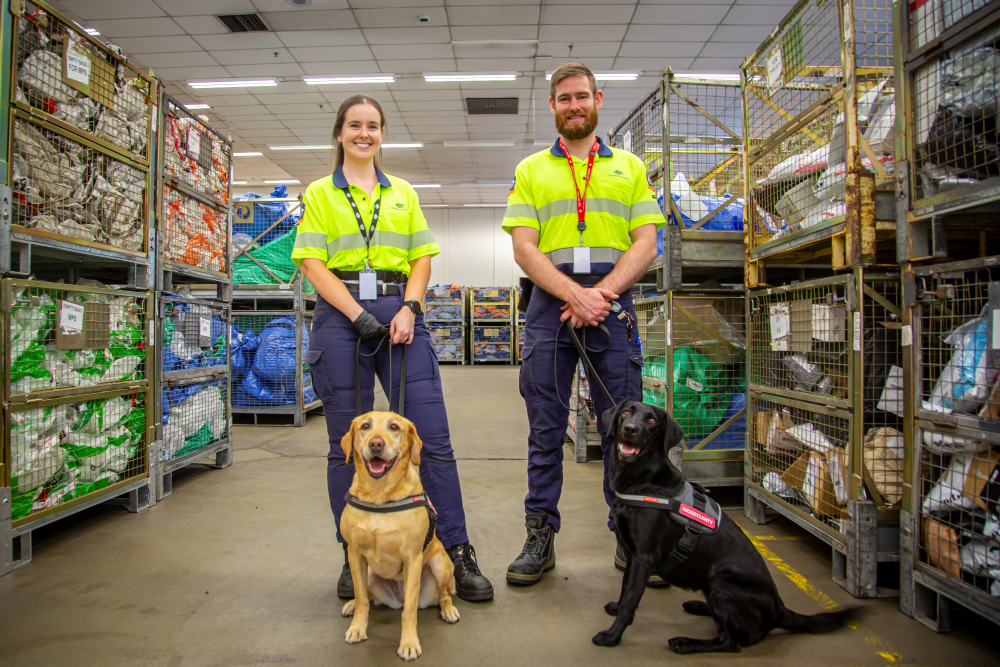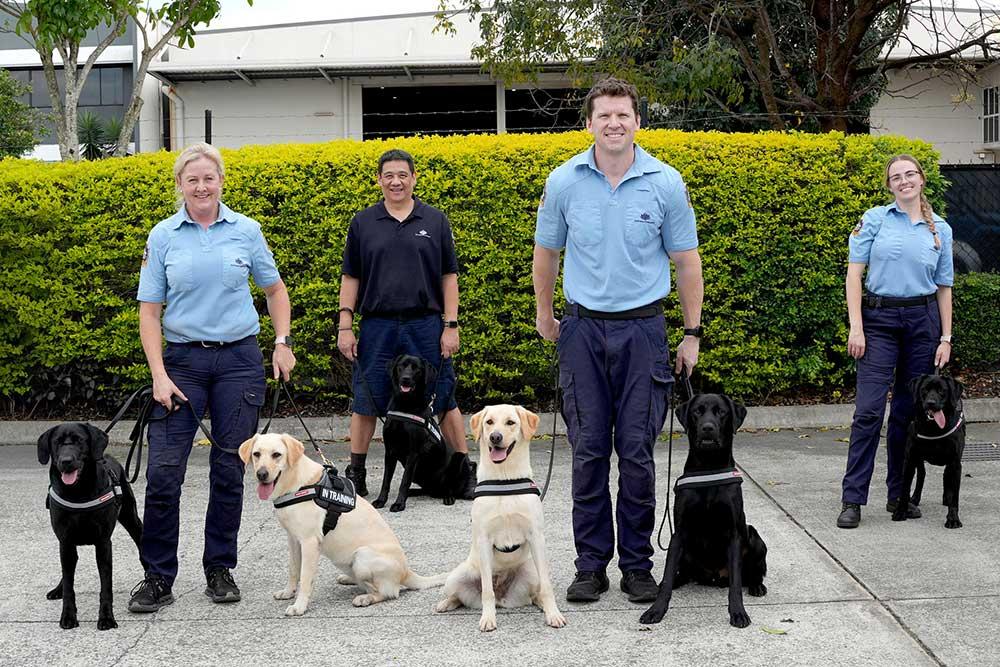Deliberate attempts to circumvent our biosecurity laws has resulted in four $5,500 infringement notices given to four different passengers across a five-day period.
On 16 May 2023, the first passenger was travelling from Sri Lanka arriving at Sydney International Airport where they tried to conceal fresh plant cuttings taped inside the base of their bag, in addition to also bringing in bananas and flour.
Also on 16 May 2023, the second passenger was travelling from the Philippines through Brisbane International Airport, where they tried to conceal plant cuttings in packages mislabelled as seafood, which were wrapped up in paper towel. The biosecurity risk materials seized were macadamia plant cuttings, cotton tree seeds, arrow root tuber and mango which had seeds present.
On 18 May 2023, the third passenger was travelling from Vietnam arriving at Melbourne International Airport where they tried to conceal plant cuttings which were concealed in a suitcase, inside a Botox box which was wrapped in tissue paper.
On 20 May 2023, the fourth passenger was also travelling from Vietnam arriving at Brisbane International Airport, where they tried to conceal nine plant cuttings in an unopened foil bag labelled as tea.
Deputy Secretary, Biosecurity and Compliance Group, Dr Chris Locke said that deliberate attempts to circumvent our biosecurity laws will result in strict penalties, noting that across five days biosecurity officers issued $22,000 worth of infringement notices.
“The fact that people aren’t declaring products and are intentionally trying to smuggle biosecurity risk material into Australia is completely unacceptable.
“My message is clear, to avoid large penalties remember to check our biosecurity rules and answer all questions truthfully on your incoming passenger card.
“If you are unsure, always tick yes and if you know you cannot bring these items into the country – don’t.
“Biosecurity officers are highly trained and skilled in uncovering hidden items through detailed inspections. All four concealments were intentionally hidden in creative ways, however our biosecurity officers conduct their inspections thoroughly and were able to find and seize these items.”
Live plant cuttings pose a major biosecurity risk to Australia, as they can introduce serious diseases like Xylella fastidiosa from a wide range of countries. Xylella is Australia’s most serious exotic plant disease risk and would have a serious impact on our grape and olive industries if it were to become established. Fresh fruit and vegetables could also introduce exotic pests, like fruit flies and nematodes.
See pictures of the items seized.
Find out more about your responsibilities when travelling to Australia.
Fast facts:
- International travellers can receive a range of infringement notices from two penalty units ($550) to 20 penalty units ($5,500) if a biosecurity officer finds goods in a traveller’s baggage that they have not declared on their incoming passenger card, or informed them about when asked: Infringement notices at the airport.
- The Biosecurity Act 2015 has been strengthened by inclusion of a 20-penalty unit ($5,500) infringement for travellers caught with concealed undeclared biosecurity goods.
- When travelling to Australia, know what you can bring in and always fill out your Incoming Passenger Card truthfully. Find out more about your responsibilities when travelling to Australia: www.agriculture.gov.au/biosecurity-trade/travelling/to-australia.



